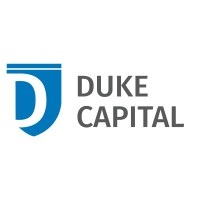The UK’s family and owner-managed businesses are stepping into 2025 with cautious optimism. A retreat from the economic uncertainty of recent years, despite lingering global challenges, is beginning to clear the path for growth. While the government’s controversial October Budget and international pressures continue to cast a shadow, key indicators such as falling inflation and improving business confidence suggest that opportunities are emerging for companies prepared to adapt.
2025 promises to be a year of recalibration for businesses navigating a shifting landscape of funding options. The Chartered Institute of Accountants in England and Wales (ICAEW) has reported a rebound in business confidence, emphasising the critical need for accessible, affordable financing to sustain growth. With inflation predicted to average 2.6% and the Bank of England’s base rate likely to drop further, businesses could find refinancing opportunities more favourable. However, expectations must be tempered. High borrowing costs and fluctuating market conditions may still challenge firms looking to secure better terms.
This year is also expected to see a significant rise in green and sustainable funding. The European Sustainability Reporting Standards are coming into force, driving many businesses to prioritise environmental initiatives. This will align with an expanding range of green financing options, which are likely to become more cost-effective as lenders diversify their offerings. Businesses not directly impacted by EU reporting obligations may also choose to embrace sustainable financing to enhance their operational and environmental credentials.
Meanwhile, alternative financing options, such as asset-based lending, will remain a vital resource for businesses looking for flexibility and speed without sacrificing equity. These solutions enable companies to leverage existing assets while maintaining control and ensuring predictable repayment terms. This type of financing is expected to remain popular in the face of tightening public-sector grant funding, which often requires match-funding and is becoming harder to access due to pressures on public finances.
Labour costs are another consideration shaping business strategies this year. The combination of higher employer National Insurance contributions, a rising National Minimum Wage, and growing wage demands—projected to increase by 3.8%—is creating additional cost pressures. This may prompt some companies to reconsider their recruitment strategies, potentially influencing broader operational decisions.
In this evolving financial and economic environment, seeking expert advice remains essential. Whether renegotiating existing loans or exploring green initiatives, professional guidance can ensure businesses make informed decisions that align with their strategic goals.
As 2025 unfolds, the adaptability and resilience of UK businesses will be critical to navigating the challenges and seizing the opportunities presented by this pivotal year.
Duke Capital Limited (LON:DUKE), formerly Duke Royalty Limited, is a Guernsey-based provider of hybrid capital solutions for small and medium-sized enterprises (SME) business owners in the United Kingdom, Europe and North America, combining the features of both equity and debt.


